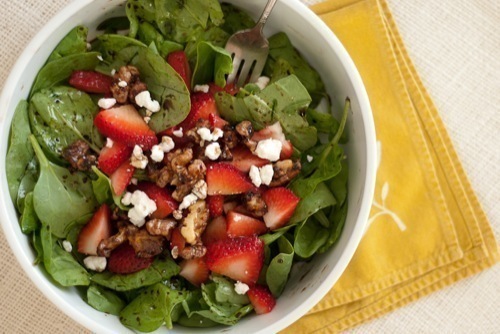Eat More Folic Acid for a Healthier Pregnancy (and Beyond)
Folic Acid, (aka Vitamin B9) is very important for healthy fetal development. It significantly reduces the risk of neural tube defects – including spina bifida. And it doesn’t stop there. Folic acid is important for cellular growth and regeneration, red blood cell creation and the prevention of anemia. Multiple studies link it to the prevention of various cancers and a healthy brain (including the treatment of depression). There are more than enough reasons to make sure you’re getting enough.
There are many foods that are naturally rich in folic acid. The good news is that it’s pretty easy to include in your diet. But where to start?
Green, leafy vegetables are your best source of folate (the natural form of folic acid). Liver is also rich in folic acid – but it’s not safe to eat while pregnant or while trying to become pregnant (as it is very rich in vitamin A – too much of which can cause birth defects).
Here’s a sample of some great folate-rich foods:
- Dark Leafy Greens like fresh Spinach top the list. Also try Kale, Collard Greens and Romaine Lettuce.
- Cooked Lentils.
- Fruits : Oranges, Grapefruit, Papaya, Grapes, Bananas, Cantaloupes and Strawberries.
- Asparagus
- Kidney Beans
- Broccoli
- Sunflower Seeds
- Avocado
- Tomato Juice
- Beets
- Fortified breads, cereals, pasta
The possibilities are endless.
Think colourful plates and lots of fruits and veg.
Try a spinach salad, sprinkled with strawberries, sunflower seeds and drizzled with balsamic and olive oil (this is delicious – experiment with your own combos with a spinach leaf base, add nuts, avocados,etc).
Start your day off with a juicy orange and banana.
Have a glass of tomato juice as a snack during the day.
Try pairing enriched wheat pasta and breads with a natural source of folate (tossing some broccoli in with your spaghetti sauce or adding spinach leaves to your sandwich).
Supplements
Food alone may not be enough. It is recommended that women take a daily 400 microgram supplement of folic acid while trying to conceive. You should continue this dose for the first 12 weeks of pregnancy, when the baby’s spine is developing. (If you didn’t take supplements before getting pregnant , you should start as soon as you found out you are.)
Be sure to talk to your doctor about folic acid. Some women are at a higher risk of having a pregnancy affected by a neural tube defect, and are advised to take a higher dose (for instance, if you have diabetes, take anti-epileptic medication or have a family history of neural tube defects.)
You can get folic acid tablets from pharmacies, health food stores or through a prescription from your GP.

